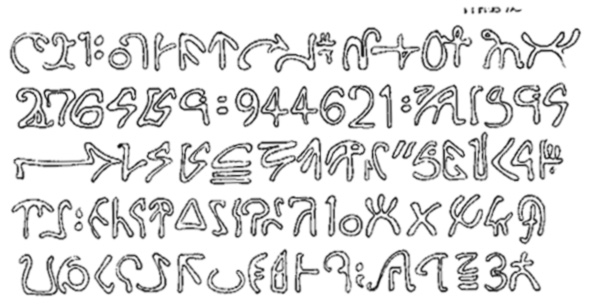
Over at io9, there’s an article about languages in science fiction, using as an example how much ours has changed since Shakespeare’s time. It’s neat, and timely, as I’m working on the language section of Shock:Human Contact next. If I do another Preview Edition, it’ll be about language and war.
I’m also drawing on The Language Construction Kit, an indie publication by Mark Rosenfelder. The website is good, but the book is more comprehensive. It really twiddles my linguistic fun center and I’m looking forward to reading the book really thoroughly when I’m done laying out Human Contact. It covers syntax (how words are assembled with each other), lexicon (words and what they mean), morphology (how spoken words are formed), and alphabet construction. I’m also wrestling with the nonfiction Writing Systems of the World and the (comically dense) World’s Major Languages.
If you’ve played Human Contact, you know the placeholder rule: you come up with a handful of syllables, then make names for people and places out of them, adding to the syllabary as needed. The primary function, though, is not just to make proper nouns (and certainly not to replace words we already have with alienish ones), but make words that really represent the way a people thinks. When a society has a concept that we, as players, have a word for, we use that word.
In our game right now, there’s a clan structure in the colony. Clans have made up names (Jun and Bri, for instance, which are added to one’s name, and changed when one changes clan, which happens rather a lot), but the word we use for clans is “clans”. On the other hand, those who serve in a clan military are by definition men, whether or not they’re male. It is scandalously impolite to point out that a marine or spacecraft crewman is female. But one’s biological mother might very well be in the military. The society can’t abide homosexuality, though, so they have a word for one’s female father: drokun. It sounds close enough to the word for “father”, drokung, that you can get the idea across without having to be explicit about it. Everyone can make believe that they heard “drokung” when you said “drokun”, but you’ve conveyed the requisite information. Likewise, I’ve got some stuff about the Academic language, Kepho-Rn, in the wiki, covering a few useful Academic concepts and their pronunciations.
My intention is to have a system that floats at a LeGuin level of language construction, where there are words or phrases to describe particular culturally unique phenomena. I also want to give optional rules for broad language construction for those who, like me, get excited about the linguistic-anthropological aspects of the game.








